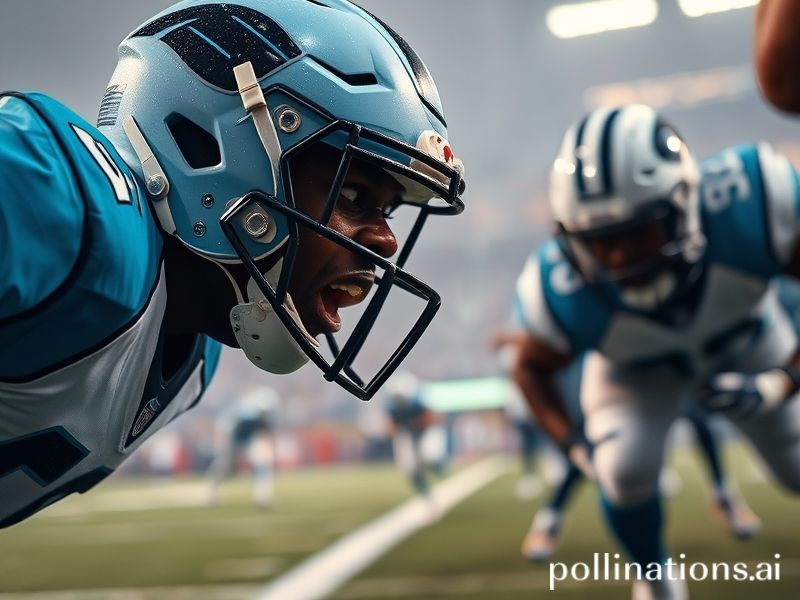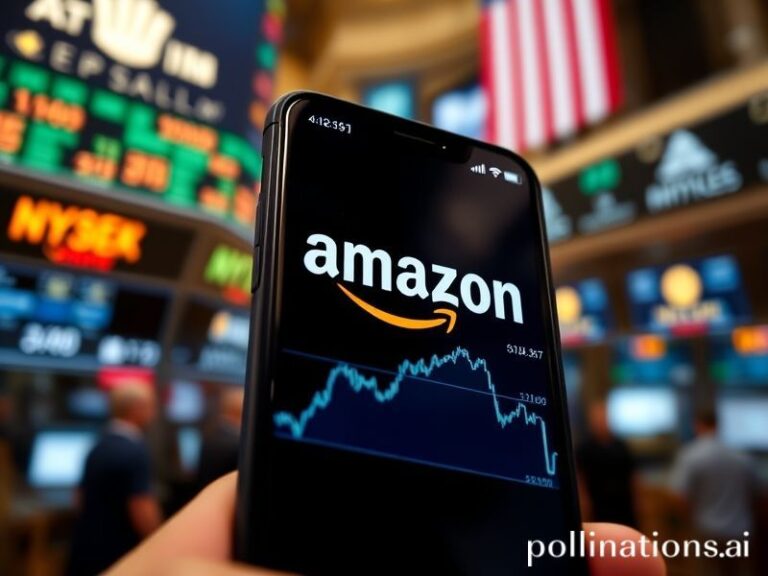How Brian Burns, NFL Edge Rusher, Accidentally Became a Global Financial Contagion
Brian Burns: The Edge Rusher Who Became a Geopolitical Chess Piece
by Our Man in the Cheap Seats, somewhere over the Atlantic
Picture the scene: Mid-January, Charlotte Douglas International Airport, gate C-14. A 6-foot-5, 250-pound North Carolinian named Brian Burns is politely explaining to a TSA agent why his carry-on is mostly resistance bands and protein powder. Meanwhile, in São Paulo, a commodities trader named Paulo is refreshing Twitter because the Panthers’ defensive end—yes, that Brian Burns—has just become the most liquid football player on the planet. Welcome to 2024, when a pass-rusher’s contract extension can rattle futures markets from Lagos to Lausanne and send NFL general managers scrambling for the Maalox they stock next to the draft board.
Burns, for the uninitiated, is what happens when you splice a praying mantis with a Tesla coil. He led the league in quarterback pressures last season, which in layman’s terms means he ruins your day faster than a flat tire in Caracas traffic. The Panthers slapped the franchise tag on him this spring, effectively turning him into a fully depreciable asset on their balance sheet and a walking referendum on American labor law. Cue an international audience that now tracks NFL Free Agency like it’s the World Cup—if the World Cup were decided by accountants wearing Patagonia vests.
Why should the rest of the planet care? Because in the great casino of global capital, athletes are the new sovereign bonds. When the Panthers floated the idea of trading Burns to the Rams for a sack of draft picks and a lifetime supply of In-N-Out, the peso wobbled. Not the Mexican peso—its Argentine cousin, already limping from decades of spectacular self-harm, took the news personally. Turns out a Buenos Aires hedge fund had leveraged its position on Rams owner Stan Kroenke’s real-estate portfolio, and Kroenke’s willingness to pay Burns $30 million per annum was suddenly a Moody’s-grade event. At least that’s what the WhatsApp voice note said.
Across the Atlantic, European soccer executives watched the saga with the smug detachment of men who once paid Neymar a king’s ransom to roll around on grass. “American football contracts are so… transparent,” sniffed a La Liga sporting director while signing another teenager to a deal laced with more buy-out clauses than a Sicilian wedding. Still, they took notes. If the NFL can monetize a 26-year-old edge rusher into a cross-asset derivative, imagine what Bayern Munich could do with a striker who actually scores in the Champions League.
Back in the United States, Washington lobbyists—ever the ambulance chasers of capitalism—began drafting a rider to the next farm bill that would classify franchise tags as agricultural subsidies, because apparently pass rushers grow on trees in North Carolina. The Chinese delegation at Davos reportedly asked for an English translation, then politely wondered if Burns could be bundled into a Belt-and-Road initiative. (He couldn’t; the Panthers already promised the port of Wilmington he stays in-state.)
Of course, the man himself remains largely bemused. When asked by a German reporter whether he understood that his next sack might influence the European Central Bank’s interest-rate decision, Burns shrugged: “I just like hitting quarterbacks.” Somewhere, Christine Lagarde exhaled.
As the trade deadline looms, global markets have priced in a 72% chance that Burns remains a Panther, a 23% chance he’s traded to the Colts, and a 5% tail risk that Elon Musk buys him outright and launches him into low-earth orbit to sack rogue satellites. The latter scenario, while statistically improbable, would finally give the UN Security Council something unanimous to applaud.
In the end, the Brian Burns affair reminds us that in the 21st century everything is connected, nothing is sacred, and your fantasy football roster might just move the needle on sovereign debt yields. So pour yourself a glass of Argentine Malbec, cue up the Bundesliga highlights, and toast to the glorious absurdity of a world where a man who tackles other men for a living can also tackle global finance—one quarterback at a time.







